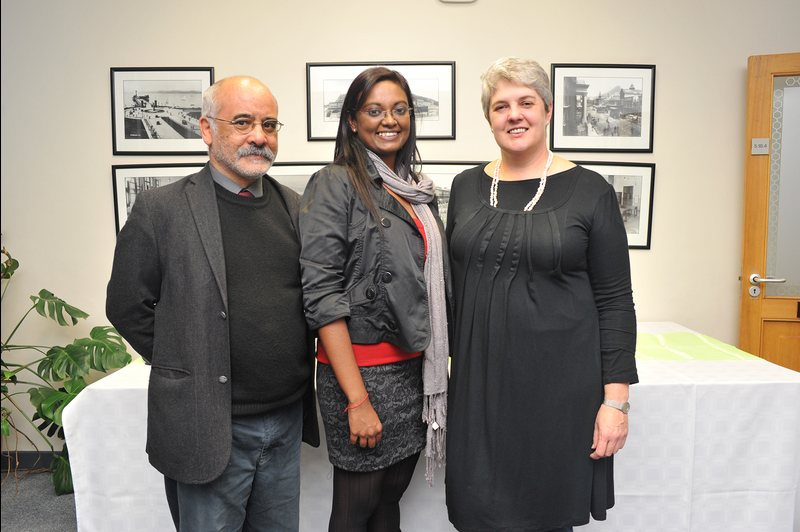Chemistry graduand benefits from EDP and hard worka
03 June 2013
One UCT PhD graduand pays great tribute to UCT's development structures to her steady progress on her academic journey.
Prinessa Chellan, soon to graduate with a PhD in chemistry, was encouraged to apply for an Honours scholarship from the UCT Chemistry Department Equity Development Programme by the late Professor John Moss in 2006. Her application was successful, and Chellan hasn't looked back since.
"Without the support of the programme I would not have been able to complete my BSc Hons. Degree in what is arguably one of the top chemistry departments in Africa," says Chellan.
A UCT student since her undergraduate days, Chellan completed an MSc in organometallic chemistry in 2009. Her MSc project entailed the synthesis and characterization of thiosemicarbazone palladium(II) complexes for biological and catalytic applications.
Her doctoral studies built on that research, focusing on the synthesis of multimetallic/multinuclear PGM macromolecules prepared from porphyrins, thiosemicarbazones and other macromolecular Schiff base ligands which can be used for biological and catalytic applications.
The EDP programme, which also supported Chellan through her Master's and PhD studies, was about more than just subsidising tuition fees, she reports.
"This programme twice gave me the opportunity to present my research in the form of a departmental seminar. In 2011, the EDP programme provided me with a grant that enabled me to travel to the Universitat Würzburg, Germany, where I learned new techniques that have expanded my skills as a synthetic chemist," says Chellan.
Professor Susan Bourne, head of department in UCT's Department of Chemistry, says the EDP got off the ground in 2001 after the department recognised a need to increase the number of disadvantaged students pursuing postgraduate studies.
"The EDP model operates by carefully selecting a cohort of black and female students and providing them with financial and other support through their postgraduate studies," explains Bourne. "The financial support is important as it enables students to concentrate on their studies unhindered by financial worries."
More than 50 postgraduate degrees have been awarded through this scheme, reports Bourne.
 This work is licensed under a Creative Commons Attribution-NoDerivatives 4.0 International License.
This work is licensed under a Creative Commons Attribution-NoDerivatives 4.0 International License.
Please view the republishing articles page for more information.










